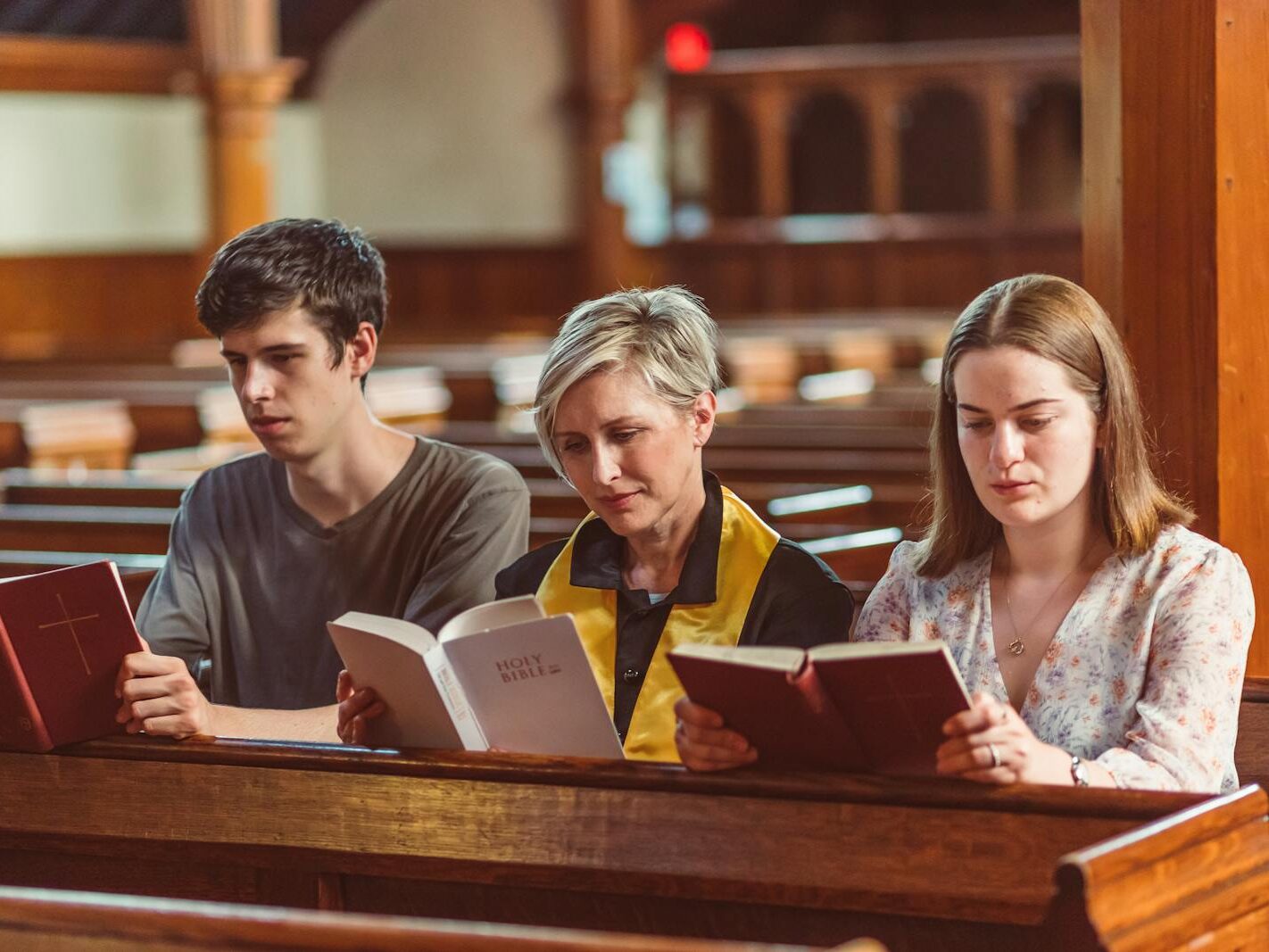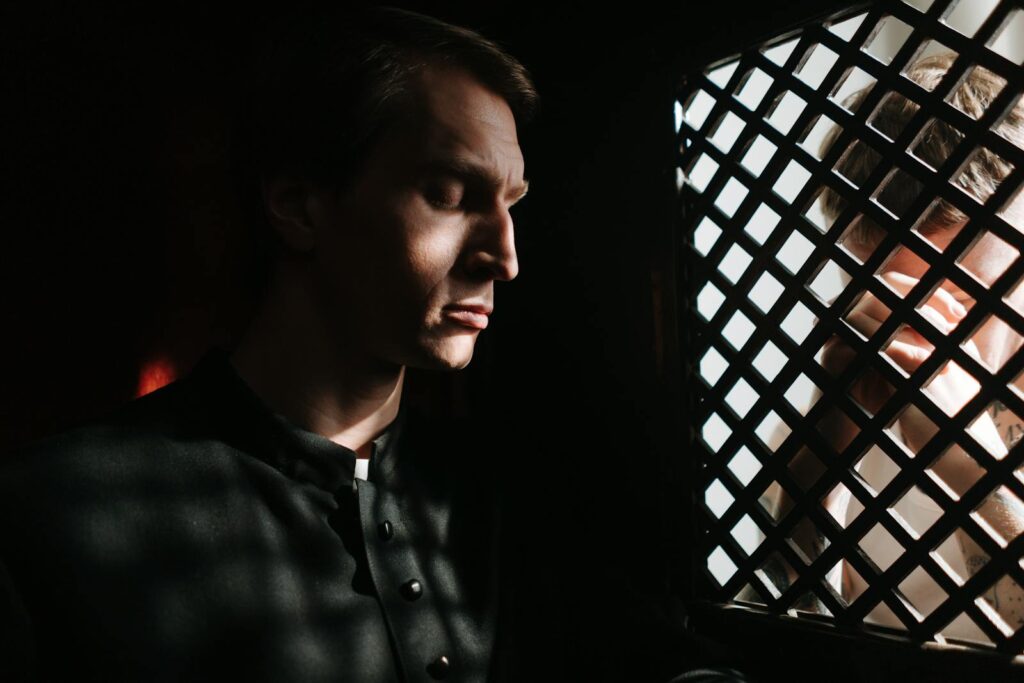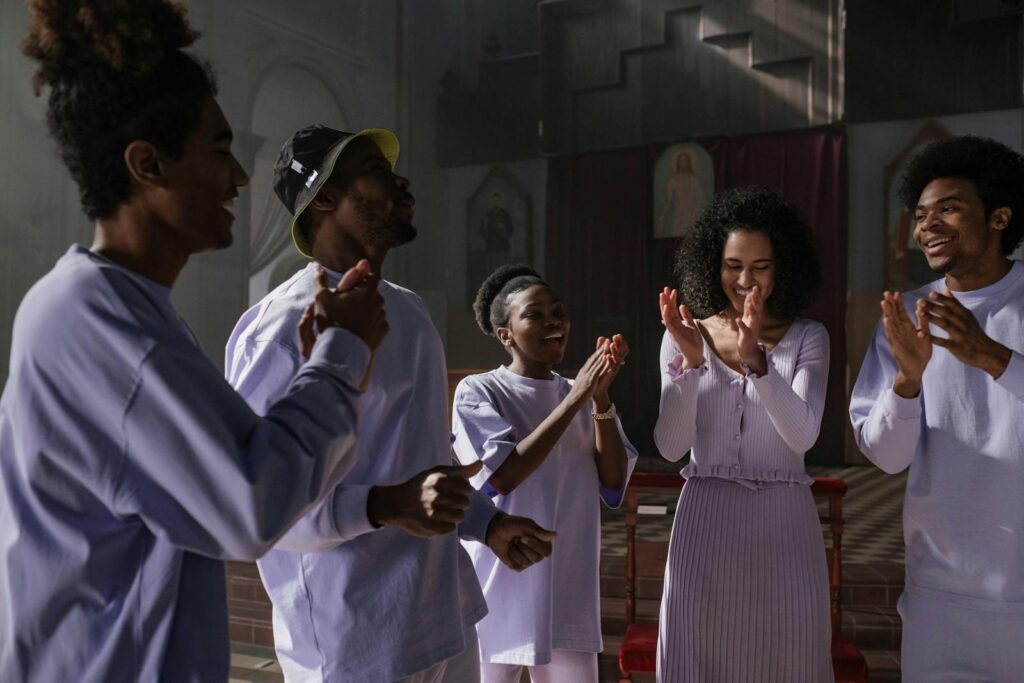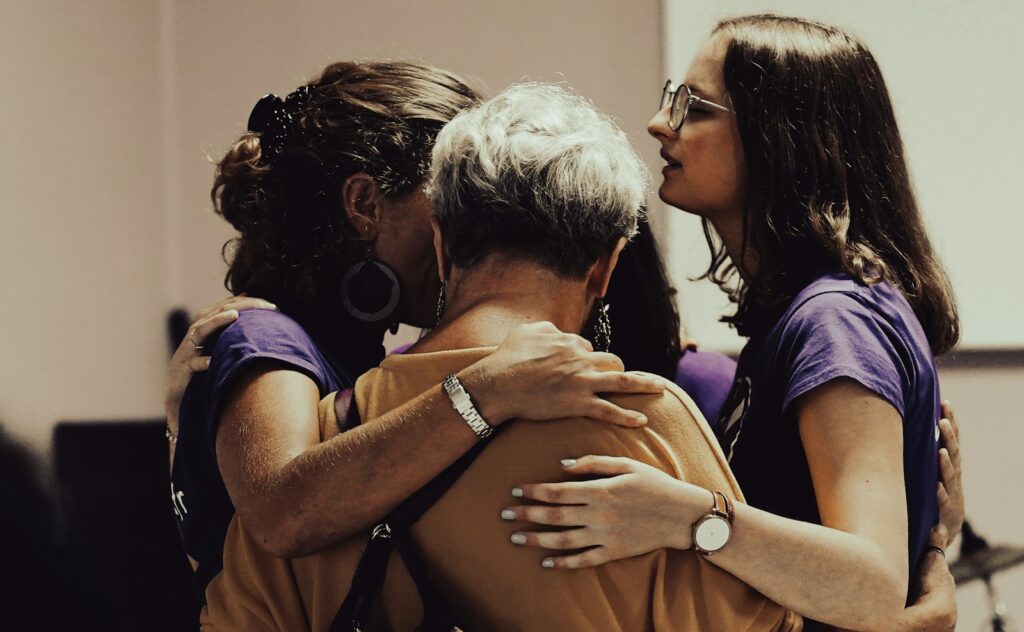
Faith shapes how Christians live, think, and make choices. For those who do not share that faith, some practices and beliefs can feel very confusing or even strange. Atheists struggle to understand why Christians act in certain ways, especially when those actions are deeply tied to spiritual conviction. Here are 15 things Christians do that atheists often find hard to make sense of.
Praying to Someone They Cannot See

Prayer is one of the most central parts of the Christian life, but for atheists, it seems puzzling. Talking to someone they cannot physically see or hear looks like speaking into the air. Christians believe prayer is communication with God and that it changes both hearts and situations. For atheists, who depend on evidence and logic, this habit can be difficult to grasp fully.
Believing the Bible Is True

Christians see the Bible as the inspired word of God, full of guidance and truth for daily living. Atheists, however, often see it as just another ancient book written by people in a different time. The idea that these words are still fully relevant today is confusing to them. They struggle to understand how stories and teachings thousands of years old are viewed as the absolute truth.
Going to Church Weekly

Many Christians make church attendance a top priority and plan their week around Sunday worship and community gatherings. This level of commitment can feel unnecessary. They wonder why someone would choose to spend so much time in one place, especially when they do not believe in God themselves. What looks like routine or obligation is actually fellowship and spiritual nourishment for believers.
Saving Sex for Marriage

One of the most countercultural practices is the decision to wait until marriage for intimacy. In today’s world, that choice seems outdated to many atheists, who often view sex as a natural part of relationships at any stage. Christians see it differently, believing it to be a sacred gift designed for marriage. This conviction, while meaningful to them, can be baffling to those outside the faith.
Tithing a Portion of Income

The practice of giving ten percent of income back to the church is hard for atheists to understand. It may look like handing money away without any guarantee of return. Christians see it as obedience, generosity, and trust that God will provide. For those who live without belief in God, the idea of regularly giving away a set portion of earnings feels unusual.
Sharing Personal Testimonies

Christians often talk about their personal relationship with God and how faith has changed their lives. For atheists, these stories sound emotional but lack the evidence they usually look for. Hearing someone describe answered prayers, divine guidance, or a spiritual encounter can feel strange when they do not believe in any higher power. It leaves them unsure of how to interpret those experiences.
Making Major Decisions Through Prayer

Christians pray about big life choices like careers, marriage, or where to live, believing God will guide their steps. To atheists, this seems unnecessary because they rely on research, reason, and planning instead. Asking for divine direction feels like giving control away. What Christians see as trust in God, atheists often view as an overreliance on faith instead of logic.
Talking About Sin

The concept of sin, or actions that go against God’s will, is central to Christian belief. Atheists struggle with this idea as they see morality as something defined by people rather than a higher power. When Christians confess sin, seek forgiveness, or avoid certain behaviors, it can feel strange to those who do not view life through the same spiritual framework.
Singing Worship Songs Together

Gathering to sing songs about God is a joyful and meaningful part of Christian worship. For atheists, the sight of hundreds of people singing passionately to someone they cannot see can feel very odd. They may see it as repetitive or even emotional manipulation. What feels deeply moving to Christians often leaves atheists puzzled about why music is such a central expression of faith.
Speaking About God’s Plan

Christians always say things like “It’s in God’s hands” or “God has a plan” when life takes unexpected turns. This mindset feels strange to atheists because it suggests giving up control to something unseen. While Christians find peace in trusting that God is guiding their lives, atheists find it very hard to accept that events happen for reasons that are beyond human decision and chance.
Fasting for Spiritual Growth

Christians sometimes fast from food or other habits to focus more on God. Atheists may see fasting as completely pointless or unhealthy, especially when there is no physical benefit. For believers, fasting is about discipline and drawing closer to God in prayer. Without sharing the same faith, atheists can find this practice confusing and even unnecessary.
Using Religious Language Daily

All expressions like “God bless you” or “Praise God” are second nature to many Christians. Atheists sometimes find these words pretty strange, especially in casual conversation. These expressions seem like unnecessary religious talk to them. But they are natural ways of speaking about life, gratitude, and faith for believers. This language difference can create a lot of misunderstandings between the two groups.
Believing in Miracles

Christians talk about miracles, whether it is healing, answered prayer, or divine protection. For atheists, miracles are difficult to accept without scientific proof. They see events as coincidences or natural explanations rather than supernatural intervention. This difference in perspective makes it hard for atheists to understand why Christians so firmly believe in the possibility of the miraculous.
Raising Children in Faith

Christian parents usually teach their children to pray, attend church, and live according to biblical values. Atheists may view this as unnecessary or even restrictive, preferring to let children decide their own beliefs later. The intentional shaping of a child’s faith from a young age is something many atheists find difficult to relate to, even though Christians see it as a vital responsibility.
Putting Hope in Eternal Life

One of the biggest differences is the Christian belief in heaven and eternal life. Atheists often view death as the end, so the idea of living forever with God feels impossible to them. Christians find comfort in this promise, shaping how they view both life and loss. For atheists, however, it is hard to understand why so much hope rests in something they cannot prove.

